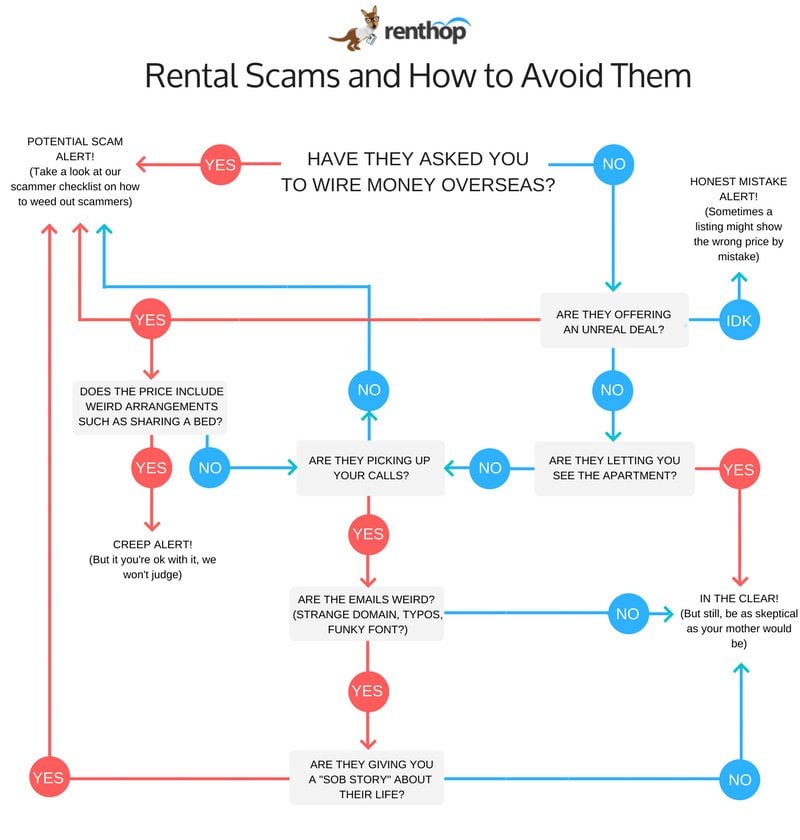Online rental listing platform RentHop has just published the results of a study on the most common rental scams, along with advice on how to avoid falling victim to them. Any agents who work with renters should pass these warning signs and tips on to their clients.

Money wiring:
Should potential renters be asked to send funds using a service like Money Gram or Western Union, or some kind of "escrow service" before seeing the property, in all likelihood it's a scam. RentHop says it's never come across a case like this in which upfront payment via one of these methods is required by the landlord.
Demanding money before seeing the property:
Scammers just love to exploit those who urgently need to find somewhere to live. It's well known that someone who needs to move quickly, in a market where rental properties are scarce, might do anything to secure what looks like an ideal apartment or home. But sending money upfront before verifying that the property does really exist is a big mistake. This advice excludes the standard request for an application fee (usually between $20 and $100) that will hold the apartment. RentHop advises agents to encourage renter clients to search Google for the property manager or owner to make sure they’re reputable before sending any deposit. Do they have a website? Are they mentioned on other websites? Is the person willing to speak to you over the phone?
Low prices:
As the old adage goes, if the price is too good to be true then it probably is. RentHop reckons that any property that's priced around two-thirds below the general market price is likely to be a scam. Not always, but certainly do your research before parting with your hard-earned cash.
Suspicious emails:
Any email that comes with a non-U.S. domain, for example mrpropertymanager.ng, could well indicate a scam (unless you're looking to rent a property in Nigeria that is!). Interestingly, RentHop also says that emails that come from Outlook.com are 19 times more likely to be a scam than emails from Gmail, Hotmail or Yahoo, the study found. It didn't say why scammers prefer Outlook to those other domains, but rest assured they do.
"Winner" claims:
If you receive an email or message from a purported property manager suggesting you've been "specially selected" the offer is more than likely to be a scam.
Sad stories:
If the person listing the rental goes on and on with a heartbreaking story in your correspondence, they’re likely trying to play on your emotions.
Copycat rentals:
A common scam is for a cybercriminal to copy a real listing and treat it as their own. That's why it’s important to search for the address of the rental to ensure the listing price and contact information matches on various sites.
You can also check out the following infographic that contains a few simple questions you should ask yourself to determine if a listing could be a rental scam. Let's face it rental scams are dormant, protect yourself and family by gaining proper information before spending your hard earned dollars.
